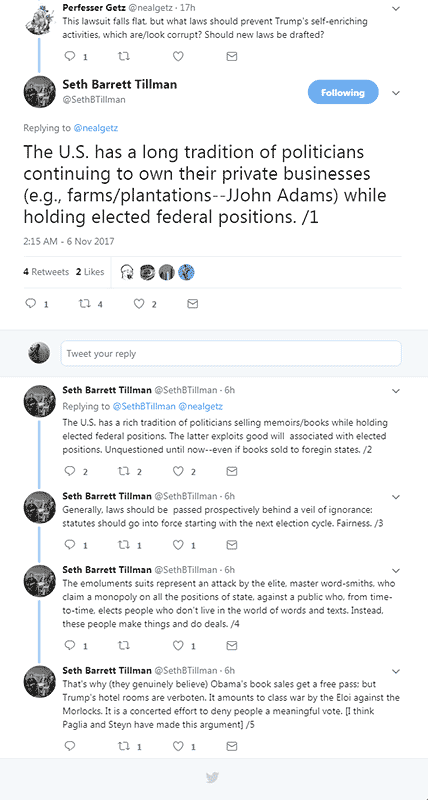These five experts did a very brave thing. They knowingly took on the cause of historical truth in spite of the fact that a social media mob had already descended on me, and in spite of the fact that they don’t (as far as I know) have any particular love for the administration. (Indeed, one of them loathes the President, but nevertheless took on this project because it was the right thing to do.) They have all written extensively on Hamilton, the Constitution, the Founding Era, and/or the Early Republic. As a personal favor to me, and if you value what has been accomplished to date, I would ask you to buy their books. If you cannot buy a book or two, please ask your local library or university library to do so. Of course, cite to their publications in your articles and elsewhere. That’s a valuable thing too. If you want honesty in our courts, in legal practice, and in the wider intellectual marketplace of ideas, then honest researchers have to be able to make a living. So if you can, help.
Read the whole thing.
Seth is gracious to people who helped him. He deserves great credit for his original and important scholarship, and for standing firm in the face of scurrilous personal attacks
